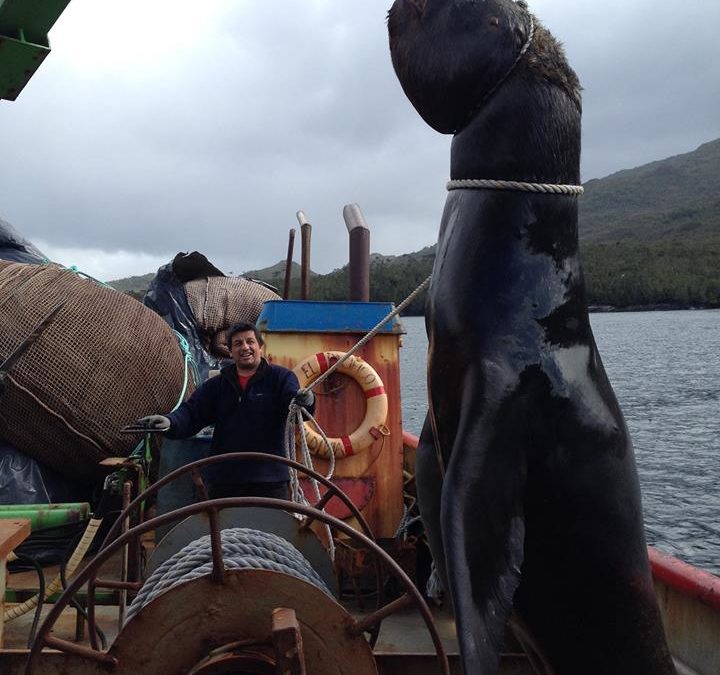The figures contradict the former undersecretary of fisheries, and leaders of artisanal fishing claims, that in 2018 denounced the existence of a “plague of sea lions” that would fluctuate between 200 thousand to 500 thousand copies, and would be responsible for the collapse of Chilean fisheries.
Valparaíso, October 12, 2019. (Ecoceanos News) – The Undersecretariat of Fisheries and Aquaculture (Subpesca) announced on October 2nd the National Census of Common Sea Lions (Otaria flavescens) commissioned to the University of Valparaíso, as part of an «express plan» to address the social crisis in coastal areas caused by overfishing, the conflicting interactions between this native marine mammal and the expansive activities of the industrial and artisanal salmon farming and fishing industries.
This also occurs in the context of the upcoming Marine Mammal Protection Act application of the US government that restricts the sale in the US market of marine food produced in contexts of negative impacts to marine mammal populations.
The Census estimates that there would be about 138 thousand specimens of South American sea lion (Otaria flavescens) and about 33 thousand of southern sea lions (Arctocephalus australis) in the Chilean aquatic ecosystems.
This data contradicts the statements of the former Undersecretary of Fisheries and leaders of artisanal fishing in 2018 that denounced the existence of a “plague of sea lions” that would fluctuate between 200 thousand to 500 thousand specimens, and would be responsible for the collapse of Chilean fisheries.
The census indicates the existence of 123 thousand specimes of Otaria flavescens between the northern border with Peru and the Patagonian region of Aysén. For the strategic region of Magallanes and Antartica Chilena, the study did not conduct a direct census, but inferred that there would be 15 thousand specimens, in 216 loberas (rookeries) of common sea lion, of which 64 are reproductive areas. The Magallanes region is the main area of expansion of the salmon industry, where periodic killings of marine mammals are reported.
Ecoceanos Centre called on the Undersecretariat of Fisheries to transparent the study of the situation of marine mammal populations in Chile, and open the public discussion on the effectiveness of populist and burocratic measures aimed to solve the complex interactions between the salmon industry with the population of South American sea lions, the results of complaints about mass killings of Otaria flavescens specimens, and analyze how the millionaire costs of their “Sea Lions Alert Plan” are spent.





